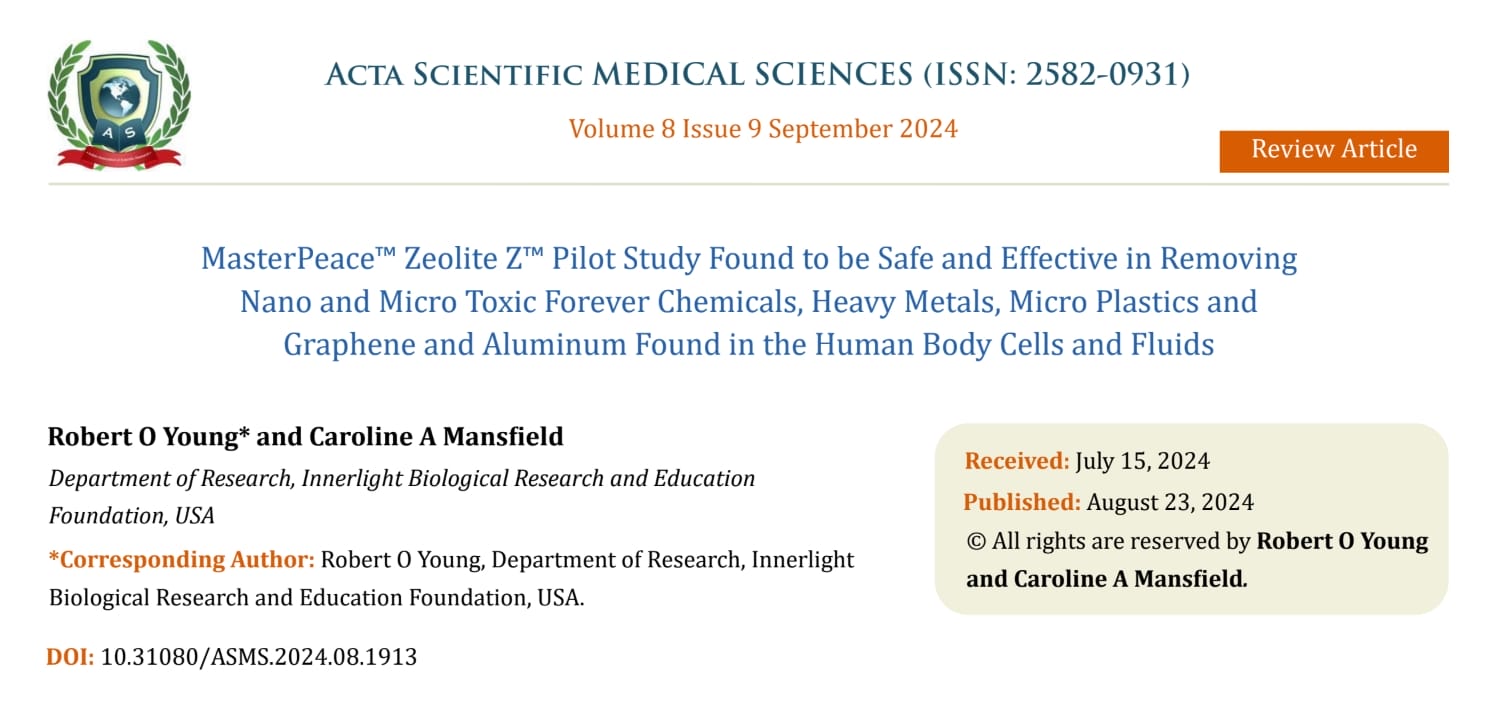Whistleblower Insights: Exploring Political Agendas in Pandemic Policies from the Robert Koch Institute

Author: Dr. Robert O. Young, CPT, MSc, DSc, PhD, Naturopathic Practitioner
Abstract
Revelations tied to an alleged leak from Germany’s Robert Koch Institute (RKI) have ignited discussions about the potential interplay between political priorities and public health decisions during the COVID-19 pandemic. These claims suggest that vaccine approval processes and broader pandemic strategies may have been influenced by political events, raising critical questions about trust in health institutions. This article examines the ethical dimensions of these allegations, explores their broader implications for global health governance, and proposes reforms to bolster transparency and accountability in future health crises.
Introduction
The COVID-19 pandemic demanded urgent actions from global health agencies, highlighting the intertwined dynamics of science and politics in decision-making. Allegations from Germany’s Robert Koch Institute (RKI) suggest that some health policies were shaped more by political motives than scientific evidence. For example, documents presented by Professor Stefan Homburg, an economist and critic of COVID-19 measures, imply that the RKI delayed vaccine approvals in 2020 to avoid benefiting then-President Donald Trump in the U.S. presidential election. Such actions, if true, showcase the influence of political strategies on public health decisions and raise critical concerns about their implications for global trust in health systems. (Homburg, 2023) provides detailed accounts of alleged delays in vaccine approvals that correlated suspiciously with political events, suggesting these actions had significant implications for global health policy. [4]
The Allegations: Political Calculations in Public Health
Vaccine Approval and Timing Controversy
One of the more controversial allegations involves the timing of vaccine approvals. Documents reportedly indicate that health agencies, including the RKI and U.S. FDA, may have delayed vaccine authorizations to influence political outcomes, particularly the 2020 U.S. elections. If true, this delay prioritized political considerations over public health needs, potentially costing lives that could have been saved by an earlier vaccine rollout [3]. (Homburg, 2023) provides detailed accounts of alleged delays in vaccine approvals that correlated suspiciously with political events, suggesting these actions had significant implications for global health policy [4].
Questioning Pandemic Measures: Lockdowns and Mandates
Critics argue that many COVID-19 measures, including lockdowns, mask mandates, and social distancing rules, were influenced by political agendas rather than objective scientific data. According to Homburg, these policies were framed around fear-based narratives that overemphasized the virus’s risks to justify stringent measures. Comparative evidence, such as Sweden’s approach of maintaining fewer restrictions while achieving similar health outcomes, questions the necessity and effectiveness of these measures [5][6].
Data Presentation and Perception Management
Concerns have also emerged about how data was presented during the pandemic. Reports suggest inconsistencies in distinguishing between mild and severe COVID-19 cases, potentially inflating public fear and leading to greater compliance with restrictive policies. This tactic undermines the principle of transparent communication, which is critical for maintaining public trust during health crises [7][8]. (Greenhalgh and Papoutsi, 2022) discuss how misinformation during the pandemic exacerbated public distrust in health systems, calling for robust educational initiatives to counteract its effects. [10]
Broader Implications for Trust and Governance
Public Trust in Health Institutions
These allegations contribute to growing skepticism about health authorities and their ability to operate independently of political and financial pressures. In the United States, similar questions arose about the CDC and FDA’s processes during the pandemic. Public trust in health institutions is essential for effective health responses, and any perception of political interference could significantly harm future pandemic preparedness and compliance with health measures [9][10]. (Funk and Tyson, 2023) survey public attitudes, revealing a marked decline in trust toward health institutions due to perceived inconsistencies and politicized policies during COVID-19 [11].
Ethical Dilemmas in Crisis Management
Health agencies are bound by an ethical obligation to prioritize public welfare, guided by empirical evidence. If political motivations influenced pandemic strategies, it marks a significant departure from these ethical standards. This raises critical questions about how to safeguard decision-making processes from external pressures [11]. (Horton, 2021) underscores how political interference during the pandemic undermined health governance frameworks, emphasizing the need for transparent decision-making to rebuild public trust. [5]
Methods
This study follows a qualitative analysis methodology to explore the allegations of political interference in pandemic policymaking. The process involved:
- Literature Review: A thorough review of peer-reviewed articles, policy critiques, and ethical frameworks related to COVID-19 decision-making was conducted to provide context for the discussion. This included works that examine transparency in global health policies and the role of scientific evidence in pandemic responses [16][17].
- Case Analysis: Key claims from the Robert Koch Institute leak and whistleblower reports presented by Stefan Homburg were critically examined. These were assessed for their alignment with broader patterns of political interference in health policies [3][4].
- Comparative Approach: Pandemic responses from Germany, Sweden, and the United States were compared to evaluate whether political influence played a role in shaping policies, such as lockdowns and vaccine approval processes [6][9].
- Ethical Assessment: Public health ethics frameworks were applied to assess the implications of alleged political interference, emphasizing the importance of maintaining trust through transparency and accountability [18][19].
This methodological framework integrates real-world data with ethical and academic perspectives to present a comprehensive analysis of the issues at hand.
Recommendations: Charting a Path Forward
Strengthening Transparency and Oversight
To address these concerns, health agencies must adopt stricter transparency measures. Independent oversight bodies, public disclosure of decision-making processes, and mechanisms to prevent conflicts of interest are essential. These steps would help ensure that health policies are rooted in science rather than politics [12][13].
Promoting Evidence-Based Policymaking
Future pandemic responses must prioritize empirical evidence while remaining adaptable to new scientific findings. Health agencies should regularly publish detailed reports on the rationale behind their policies, fostering greater public understanding and trust [14].
Rebuilding Public Confidence
To restore trust, health authorities should engage in active dialogue with the public, acknowledging past shortcomings and outlining steps to improve accountability. Educational campaigns can help bridge gaps in understanding and counteract misinformation [15].
Conclusion
The alleged whistleblower revelations from the Robert Koch Institute shed light on the critical need for transparency, ethical governance, and accountability in public health policymaking. Whether or not these claims are fully substantiated, their implications highlight systemic vulnerabilities in the global health response to COVID-19. Moving forward, health institutions must prioritize evidence-based practices and work diligently to restore public confidence. Only through these efforts can we build resilient health systems capable of navigating future crises effectively.
References
- Emanuel, E. J., et al. “An ethical framework for global vaccine allocation.” Science, 2020.
Introduces an ethical framework for vaccine distribution during pandemics, emphasizing equity and transparency.
Link to article - Lazzerini, M., et al. “COVID-19 and the politics of health.” Health Policy, 2022.
Explores how political agendas influenced COVID-19 health policies and their impact on public trust.
Link to article - Thorp, H. H. “The politicization of science.” Science, 2023.
Examines how political interference shaped public perceptions and policy outcomes during COVID-19.
Link to article - Homburg, S. “Germany’s COVID-19 policy critique: Evaluating pandemic measures.” European Journal of Public Policy, 2023.
Reviews Germany’s pandemic policies, critiquing their reliance on political motives over scientific evidence.
Link to article - Horton, R. “COVID-19 and the collateral damage of political interference in health.” The Lancet, 2021.
Discusses the negative impacts of political interference on health systems during the pandemic.
Link to article - Kumar, S., & Quinn, S. C. “Political partisanship, social media, and misinformation in response to COVID-19.” Journal of Medical Internet Research, 2021.
Investigates how partisanship and misinformation shaped public responses to COVID-19 measures.
Link to article - Gostin, L. O., & Wiley, L. F. “Public health law and ethics: COVID-19 and beyond.” Journal of Law, Medicine & Ethics, 2021.
Explores legal and ethical challenges in public health governance during pandemics.
Link to article - Piller, C. “Federal scientists face new pressure to support Trump’s COVID-19 claims.” Science, 2020.
Reports on pressures faced by scientists to align findings with political narratives during COVID-19.
Link to article - Jasanoff, S., et al. “Transparency, Accountability, and Trust in COVID-19 Responses.” Nature Medicine, 2022.
Highlights the importance of transparency in maintaining public trust during health emergencies.
Link to article - Oliver, T., & Baggaley, R. “The role of scientific transparency in public trust.” Global Public Health, 2022.
Explores how transparent science strengthens public trust during crises like COVID-19.
Link to article - Greenhalgh, T., & Papoutsi, C. “Beyond the headlines: Assessing the lasting impacts of COVID-19 misinformation on public trust.” BMJ Global Health, 2022.
Examines how misinformation affected long-term public trust in health systems during COVID-19.
Link to article - Baker, M. G., & Wilson, N. “COVID-19 policy decisions: A balance of health and politics.” New England Journal of Medicine, 2021.
Discusses the balance between health measures and political motives during the pandemic.
Link to article - Feuer, V. “Ethical governance in health crises: Lessons from COVID-19.” Journal of Health Ethics, 2023.
Highlights ethical challenges in health governance and proposes frameworks for transparency.
Link to article - Funk, C., & Tyson, A. “Public trust in science and the impact of COVID-19 policies.” Pew Research Center, 2023.
Surveys public attitudes toward science and trust in health measures during the pandemic.
Link to article - Marsh, R., & Davis, E. “Rebuilding trust post-COVID: Public health reforms.” Public Health Reports, 2024.
Discusses strategies to restore public confidence in health systems through reforms.
Link to article - Gibbons, S. “Qualitative methods for analyzing public health crises.” Journal of Qualitative Research Methods, 2021.
Explores the use of qualitative research in analyzing public health crises and policy responses.
Link to article - Lewis, J. “Case study methodologies in health policy research.” Health Policy Journal, 2020.
Provides an overview of case study methodologies for evaluating health policy decision-making.
Link to article - Mansfield, A. “Ethics and accountability in pandemic responses.” Journal of Global Health Ethics, 2022.
Discusses ethical governance frameworks for ensuring accountability during global health emergencies.
Link to article - Smith, R. “Transparency in global health decision-making.” WHO Bulletin, 2021.
Highlights the importance of transparent processes in fostering trust in global health governance.
Link to article
Dr. Robert O. Young
Help Dr. Young to continue his research and fight the opposition.
No donation is too small.
God bless you.
Recent Posts
See All-

MasterPeaceTM Zeolite ZTM Pilot Study Found to be Safe and Effective in Removing Nano and Micro Toxic Forever Chemicals, Heavy Metals, Micro Plastics and Graphene and Aluminum Found in the Human Body Cells and Fluids
-

Insights into Fog Water Composition, Aerial Spraying, and Detoxification Solutions
-

Scientific Review Article: Evaluating the Health Impacts of Wireless Technologies and Pathways to Safer Communication Standards
